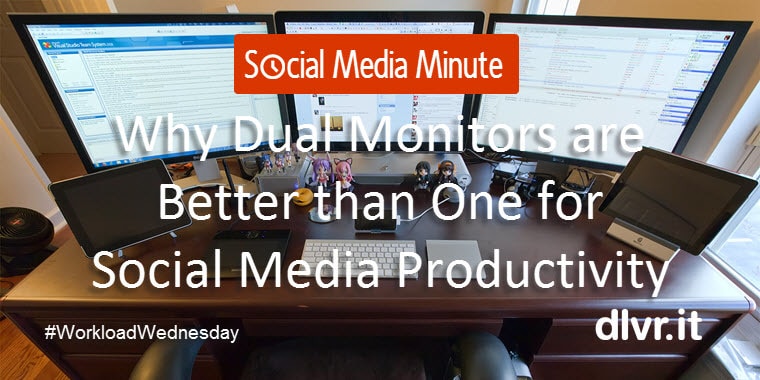
Tools for Social Media Management – Grow Your Brand
The Best Social Media Management Tools
Social media management tools are ideal for managing multiple social accounts across different platforms such as Facebook, Twitter, Instagram, and YouTube, all from a single dashboard. These tools allow you to schedule posts, monitor comments, create custom reports, manage your followers, and much more. In this article, we have listed the best social media management tools available on the market today.
Social media marketing is no longer just about posting status updates and pictures to your social media accounts. You now have to think about how to engage with your audience on different platforms, which is an important aspect of your social media strategy. There are many options available today, and we’ve put together a list of some of the best ones. It’s a great way to manage your online presence across all social media channels – and for all they do, they are extremely cost-effective.
Will I Need a Social Media Manager?
What is the difference between a social media manager and a social media automation tool? A social media manager manages all of your social profiles from one place while an automation tool allows you to automate certain tasks like posting content or scheduling tweets. A social media management tool enables anyone on your team to take charge of your marketing automation and manage your social media efforts, and much more, from one dashboard.
Automation and Time-Saving Features
Automated tools are great because they save you time and make it easier to do things. They also help you avoid making mistakes. You can set up email campaigns, landing pages, forms, and even social media posts all within one dashboard. This saves you time and makes it easy to track conversions.
A good automation tool will integrate with other parts of your marketing strategy. If you use Hubspot, for instance, you can link your CRM system directly to Hubspot. Then, you can automatically send emails based on what happens in your CRM.Collaboration features
Social media tools are designed to make it easier for businesses to manage social channels. They come with built-in collaboration features such as chat rooms, live streaming, and video conferencing, which makes it easy to communicate with customers and prospects. These features are especially helpful for small businesses because they don’t require large teams to operate effectively.
Reporting and Analytics
Reporting tools should be able to deliver clear insights into your audience, including demographics, interests, behaviors, and engagement levels across all platforms. They should also be able to monitor the performance of individual channels separately. Social media management tools should integrate reporting features.
The Best Social Media Management Tools Include These Features:
• Analytics – Track the performance of each channel separately.
• Content curation – Find relevant content from around the web and share it with your audience.
• Customer support – Get answers to any questions you may have quickly and easily.
• Customization – Create unique layouts and designs that fit your brand’s style.
• Scheduling – Schedule posts ahead of time so you never miss a beat.
• Security – Make sure your data stays safe by using encryption technology.
• Social sharing – Share content with friends and family through social networks.
• Video editing – Edit videos and add special effects.
• Visual editor – Easily create beautiful images and graphics.
• Web design – Build websites that look professional and reflect your brand.
• Website builder – Create a website without coding knowledge.
• Workflows – Set up automated tasks that run when certain events occur.
• Email marketing – Send personalized messages to subscribers via email.
Social Media Management Software – a List
dlvr.it
dlvr.it helps marketers manage their brand across multiple platforms like Facebook, Twitter, Instagram, YouTube, LinkedIn, Pinterest, Blogger, Tumblr, WordPress, and others. A lot of people think that free tools are inferior to paid ones simply because they cost nothing. But that isn’t true. Many free programs include basic functionality that allows you to accomplish certain tasks.
Buffer
Buffer is one of the most popular social media management platforms out there. You can use it to schedule posts across Facebook, Twitter, Instagram, LinkedIn, Tumblr, Pinterest, and even YouTube. Buffer lets you set up automatic posting based on keywords, hashtags, and topics.
Hootsuite
Hootsuite is another powerful social media management tool. With Hootsuite, you can post to multiple networks at once, track performance, measure ROI, and see analytics about what people like and don’t like. You can also add custom tags to posts, monitor mentions, and reply directly from within the app. Plus, you can connect with influencers and brands to build relationships and gain exposure.
Sprout Social
Sprout Social is a complete social media dashboard that helps you manage everything from scheduling to analytics. It includes analytics, reporting, and insights into your audience’s behavior. You can also integrate with third-party apps and APIs to automate tasks. And you can easily customize your dashboard to fit your needs.
For those looking to grow their audience organically, SproutSocial is a good choice. Its features include analytics, scheduling, and a variety of integrations. If you’d rather focus on growing your brand, SproutSocial offers paid plans starting at $15/month.
NapoleonCat
NapoleonCat helps you manage multiple accounts and keep track of them all. You can use it to make sure you are posting consistently across platforms, schedule posts, and even set up automatic replies. This app is perfect for eCommerce businesses looking for ways to increase conversions.
Social Pilot
If you don’t want to spend money on a full-fledged social media management system, Social Pilot might be the perfect fit for you. It’s free, and it does offer a lot of features. For example, you can schedule posts, upload images, and even add comments to your posts. You can also set up alerts to notify you whenever someone shares your content.
Simplify Your Marketing With social media management tools
Social media management software helps users create posts ahead of schedule, post them across different platforms, and engage with followers. This tool allows companies to increase brand awareness and customer loyalty.
Social media management tools allow you to manage multiple accounts simultaneously. You can post content across all platforms, including Facebook, Twitter, Instagram, LinkedIn, Pinterest, Tumblr, YouTube, Snapchat, Reddit, Vine, etc. These tools make it easier to monitor conversations happening around your brand or product.
They help you track what people are saying about your brand or product. This includes mentions, hashtags, likes, comments, shares, retweets, etc. Social listening tools give you insight into how well your posts perform. For example, you can see how many impressions each post receives, how many times it gets shared, and how much traffic it drives to your site.
Engage with Your Social Platform Customers
You can use these tools to find influencers, engage with customers, and build relationships with potential partners. If you’re looking to promote your business, this will help you get more attention and engagement.
These tools can be used to find new customers, as well as existing ones. They can also help you identify which channels are working best for your audience.
If you want to reach a wider audience, these tools can help you do so. You can share your content on other sites, such as blogs, forums, and news outlets.
Do Social Media Management Tools Save Time?
Social media marketing tools are essential for every marketer because they make it easier to manage multiple accounts across different networks. These tools automate tasks like bulk scheduling posts, monitoring performance, analyzing data, and providing insights into what works and what does not work on social media platforms.
Is Security an Issue with Social Media Management Tools?
Yes! Social media management tools are very useful, but they come with their own set of security risks. Hackers have been known to target popular social media platforms, such as Facebook, Twitter, Google+, and others.
This means that if hackers gain access to your account, they could steal your personal information, change your settings, or even delete your account.
How Can I Protect Myself From Social Media Attacks?
The first step in protecting yourself against attacks is to ensure that you only log into the social media platform using strong passwords. Make sure that you don’t reuse the same password across multiple websites.
Also, never click links in unsolicited emails or messages. Never open attachments unless you know who sent them. Always keep your operating system up to date, and install updates immediately when they become available.
Use a VPN (Virtual Private Network) to protect your online activity while browsing the web. A VPN encrypts all of your internet traffic, making it harder for hackers to intercept and read your communications.
Lastly, always remember to enable two-factor authentication whenever possible. Two-factor authentication requires additional verification steps beyond just entering your username and password. It’s a good way to prevent unauthorized users from accessing your account.
Types of Social Media Management Tools
There are three main categories of social media management software: desktop apps, web apps, and mobile apps. Desktop apps are typically used by businesses, whereas web apps and mobile apps are usually used by individuals. In general, desktop apps tend to be easier to use, since they require less technical knowledge. However, web apps and mobile apps often provide more functionality.
Desktop Apps
The most common type of social media management software is desktop apps. These programs allow you to manage multiple accounts simultaneously, schedule posts, monitor activity, and perform other tasks. You can even add custom fields to posts, allowing you to track specific metrics such as likes, shares, comments, etc.
Desktop apps are great because they work well on computers, tablets, smartphones, and other devices. They are easy to install and configure, and they generally come with a free trial period. However, they do require some technical skills to set up properly. If you want to learn how to use desktop apps, we recommend checking out our guide here.
Mobile Apps
Web apps and mobile apps are both relatively simple to use. Web apps are accessible via a browser, and mobile apps are accessed via a smartphone app store. Both web apps and mobile apps give you access to your account information, including analytics data. Mobile apps also let you post directly from within the app itself, making it convenient to quickly update your status.
Web Apps
However, web apps and mobile applications lack certain features found in desktop apps. For example, web apps and mobile applications cannot send push notifications, meaning that you won’t receive alerts for new messages or mentions. Additionally, web apps and mobile apps aren’t able to integrate with third-party tools, such as Facebook Ads Manager.
If you’re looking for a tool that provides a lot of flexibility, desktop apps are the way to go. On the other hand, if you just want to check in once in a while, web apps and mobile Apps are perfect.
Social Media Management Tool Prices
Social media management software varies widely in price. Some offer free versions in addition to higher-priced plans. There are even some paid platforms that offer unlimited storage space and bandwidth.
The most basic version of a tool like Hootsuite offers scheduling, analytics, and reporting. You can use it to manage multiple accounts, monitor conversations, and schedule posts.
More robust solutions include custom integrations with third-party apps such as Slack, Salesforce, and Trello. They allow you to automate tasks across multiple channels, track performance metrics, and integrate with CRM systems.
Some companies offer managed hosting for their customers. These packages typically include everything needed to run a successful campaign, including email marketing, web design, and customer support.
Free vs. Paid Tools
When deciding whether to use a social media scheduling tool, it’s important to understand what you are getting into. There are many different types of software solutions, including both free and paid versions. Some companies offer free trials while others charge monthly fees. In some cases, you might even find a combination of both.
The best way to determine whether a particular solution fits your needs is to test it out. You don’t want to make a decision based solely on price because there are plenty of free alternatives that do everything you need. Instead, take advantage of trial periods and see how well the product works for you. If you decide to continue using the tool, you can always upgrade later.
If you choose to go with a paid option, you’ll likely pay less upfront. However, you could end up paying more over time due to additional advanced features and upgrades. For example, you might be able to save money by purchasing a single version of a program rather than upgrading every month. On the flip side, you could spend more money buying multiple licenses of a product.
In addition to pricing, another factor to consider is how features including visual calendars, a messaging inbox, a dedicated publishing queue, and much more. Their team of experts are always ready to help you strategize, optimize, measure ROI, and more.
Publish Flawlessly. Analyze Effortlessly. Engage Authentically.
As you have read here, social media management tools make it easier to schedule posts across social media platforms. With just a few taps you can publish to Facebook, Twitter, LinkedIn, Instagram, Pinterest, Tumblr, YouTube, Google Plus, Reddit, Snapchat, Vine, Periscope, Flickr, and Foursquare. You can even add custom URLs to your list of sites. And there are no limits to how many times your social teams can schedule content in advance on each site.
Conclusion: Social media management tools
Social media management tools are software solutions designed to make it easier for businesses to manage multiple social networks. These tools typically provide a dashboard where you can view information about your social profiles, including how many followers each account has, what type of content gets shared most often, and much more. You can use these tools to post content, schedule future posts, comment on others’ posts, and even respond to comments.
A good social media management tool allows you to create posts, set up schedules, and monitor analytics. For example, some tools let you see how many people clicked on your link, whether they liked your page, and how many times they viewed your profile. Other tools offer commenting options, allowing you to reply to specific comments or engage with conversations.
Some social media management tools come with additional features, such as scheduling, analytics, and social media monitoring and reporting capabilities. Scheduling lets you plan out your posting strategy over time. Analytics gives you insight into how well your campaigns are performing. Reporting helps you analyze data across different platforms.18 social media management tools for businesses in 2023
Social media marketing is one of the most effective ways to reach potential customers. However, it takes some planning and preparation to ensure that you’re getting the best ROI possible. In addition to choosing the right channels, you must also choose the right tool to help you run your campaigns.
Recap: Social Media Management Tools That are Easy to Use and Powerful
dlvr.it
dlvr.it is a powerful marketing management solution designed specifically for digital marketers. CoSchedule helps you plan, execute, analyze, optimize, measure, report, and track every aspect of your campaigns and social posts. Whether you’re managing a single campaign or hundreds, dlvr.it gives you complete control over your entire social media content workflow.
Sprout Social
Sprout Social is a great option for small businesses looking to grow their presence online. Its interface is intuitive and simple to navigate, making it ideal for beginners. Sprout Social also offers a variety of integrations, including Zapier, Slack, Salesforce CRM, HubSpot CMS, Marketo Marketing Cloud, MailChimp, and Zendesk.
SocialPilot
SocialPilot is an easy-to-use tool that makes it super simple to manage your social media presence. You don’t need to know how to code or design anything – just enter your username and password and start posting.
With SocialPilot, you’ll never miss another post again. Schedule posts ahead of time, monitor your followers’ activity, and even reply to comments.
Buffer
Buffer is one of the most popular social media management tools around. With over 50 million monthly active users, it’s easy to see why. This tool allows you to schedule posts across multiple networks, including Facebook, Twitter, LinkedIn, Instagram, Pinterest, Tumblr, Google Plus, Reddit, Snapchat, YouTube, and even WordPress. You can also use it to track performance metrics such as impressions, engagements, likes, shares, comments, and conversions.
Buffer is a tool that helps people schedule posts across different social networks. You can use it to post regularly on Facebook, Twitter, Instagram, LinkedIn, Pinterest, Tumblr, Reddit, Snapchat, and even YouTube. All you need to do is set up one profile, add your desired networks, and choose how often you want to post. Then, just sit back and watch your followers grow.
The app is completely free, and there are no ads. However, there is a paid version called Pro that includes additional features like custom scheduling, analytics, and more.
Sprout Social
Sprout Social offers many different tools to help businesses manage their social media presence. You can use reports to see how well your posts perform across platforms, and you can even set up automated tasks to post regularly. Its CRM tool lets you store contact information and follow up with customers.
Social media management software is one of those things you probably don’t think about too much. But it’s important to know what you are getting into. There are many different types of social media management software out there, and each one offers something unique. Some offer basic features like scheduling posts, while others go far beyond that. But the common features for business owners is that many have is the ability to manage your social media calendar, schedule content, complete reporting with analytics features, and improve social engagement.
Debra Garber
Related Posts
IN THIS ARTICLE



